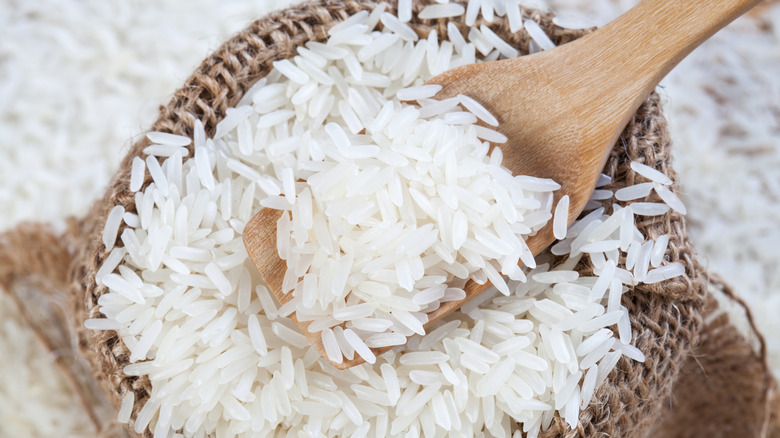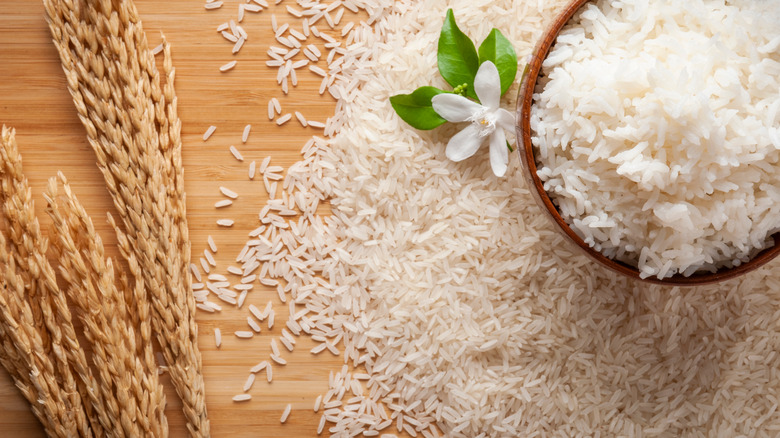The Reason Rice May Be The Next Victim Of Inflation
In your recent forays to the supermarket, you've undoubtedly noticed that food prices are soaring across the board. From wheat to avocados to eggs (just to name a few), staple ingredients are more expensive than they have been in 41 years, according to CNN. The outlet reports that this is due to complicating factors including the Ukraine-Russia conflict which has reduced exports from those two major grain suppliers, U.S. conflict with avocado growers in Mexico, and an avian flu outbreak that has caused U.S. farmers to put down many egg-laying hens.
But the issue that's putting the most pressure on global food prices is undoubtedly the record inflation that's bumped up the cost of foods such as meat, poultry, and fish, as well as fresh fruit, pre-packaged cereals and baked goods, according to CNBC. According to a June CNBC report, inflation can be expected to slow by next year, but in the meantime, the prices of staple food items are predicted to remain high or climb higher. With the prices of grains such as wheat and oats soaring, shoppers might well be choosing to eat more rice, a widely consumed grain that historically has been extremely cheap, per the United Nations. But even that strategy might falter, with data from the U.N. showing that rice prices, too, are shooting up due to inflation.
Rice prices have risen for the past five months
According to CNBC, rice — that staple grain from which so many of us craft dinnertime favorites such as chicken fried rice, mushroom risotto, and red beans and rice — is getting more expensive due to inflation. In its recently released Rice Price Update, the United Nation's Food and Agriculture Organization (FAO) reported that international rice prices have gone up for five months in a row, and last month hit a yearlong high. That's bad news for shoppers who may already feel frustration with the high prices of wheat, oats, and other grains which have crept up due to inflation and global conflicts.
Although rice production in countries such as China, India, and Indonesia is still robust, experts told CNBC, shoppers looking for rice as an alternative to now-pricy grains like wheat could drive up demand and lower the amount of rice circulating in the marketplace. "We need to monitor rice prices going forward, because rising wheat prices could lead to some substitution towards rice, increasing demand and lowering existing stocks," Sonal Varma, chief economist at the Japanese bank Nomura, told the outlet.
As of late May, Thailand and Vietnam were already in talks to agree to raise the price of their rice exports (via Reuters), and earlier this month, Indian rice exporters told Reuters that international traders of the grain are ordering unusually high amounts.

